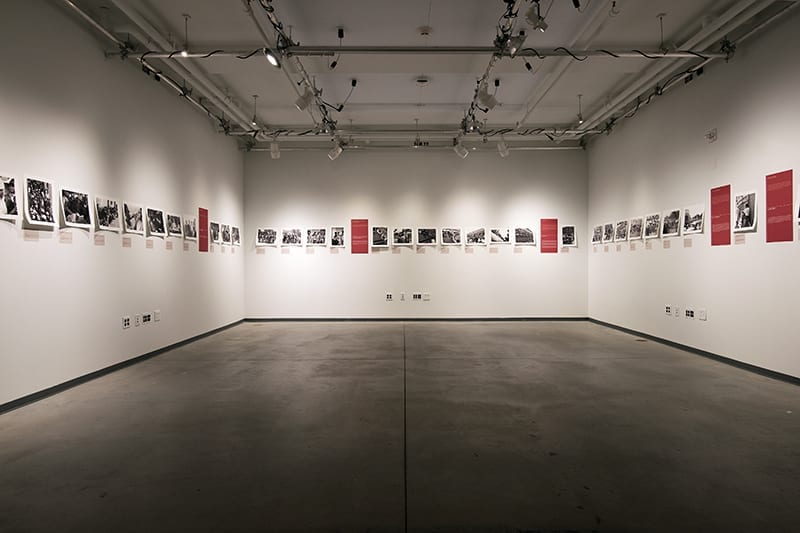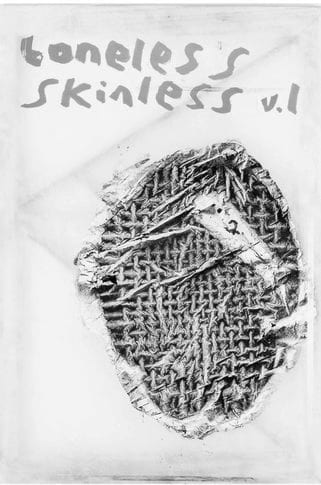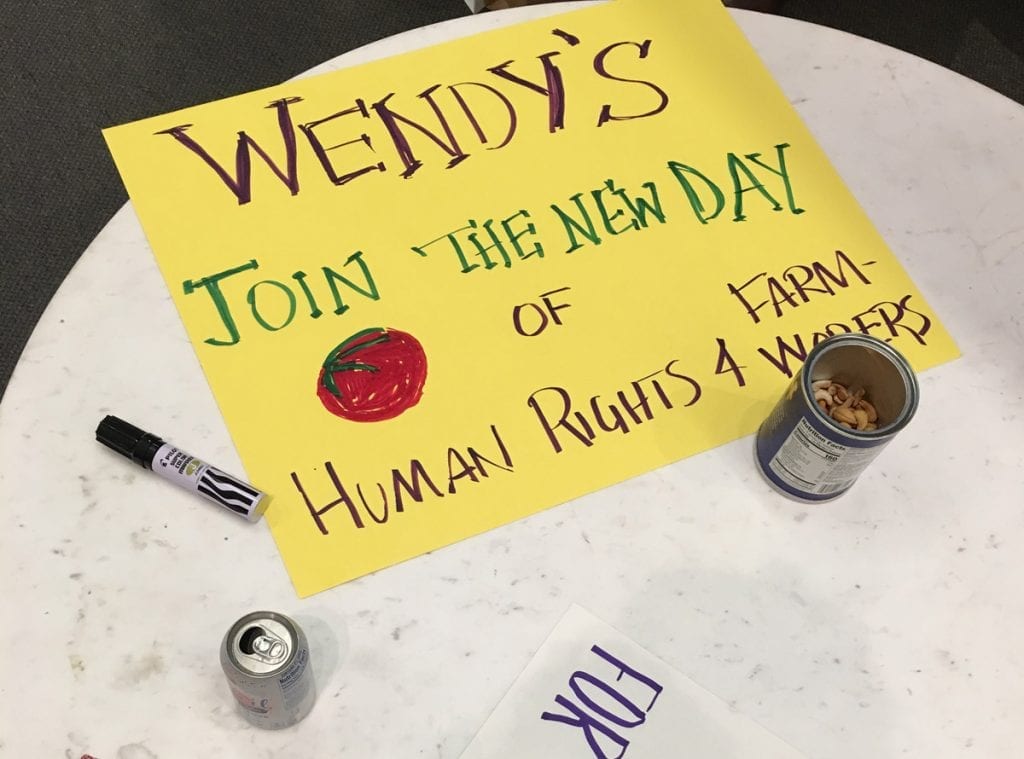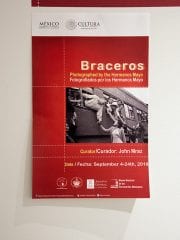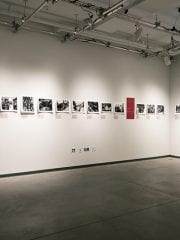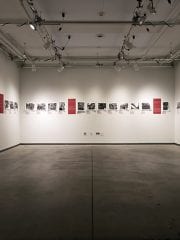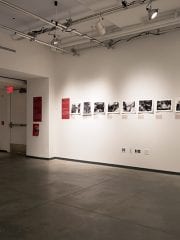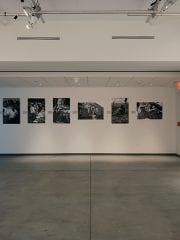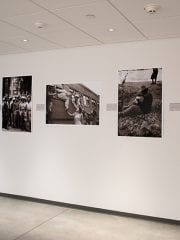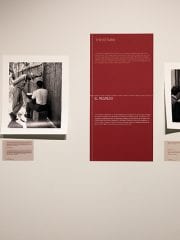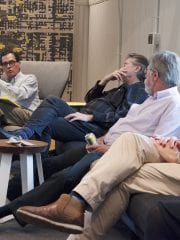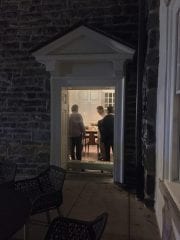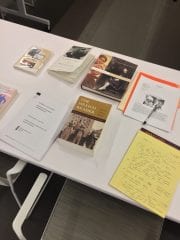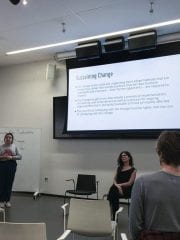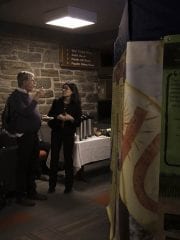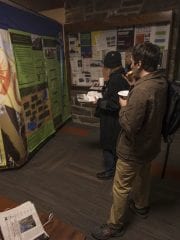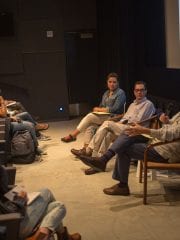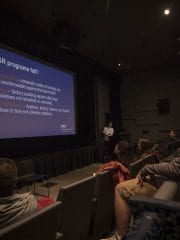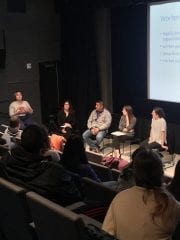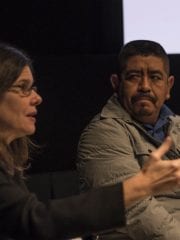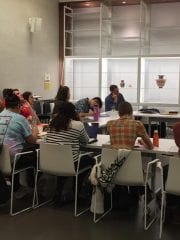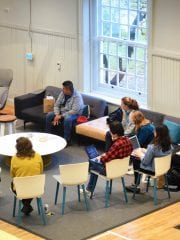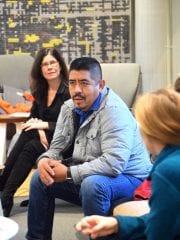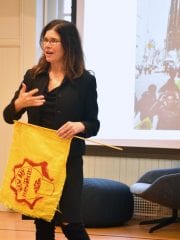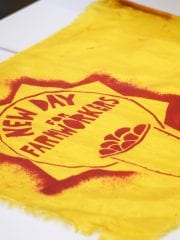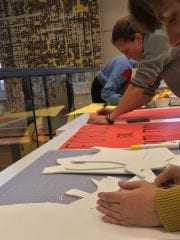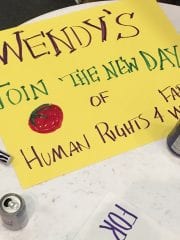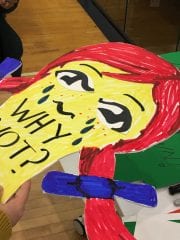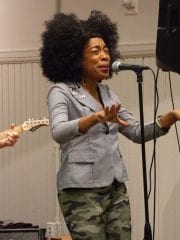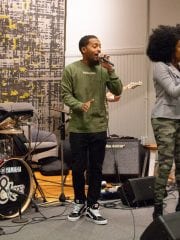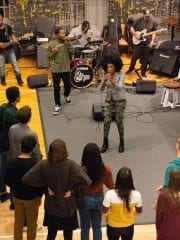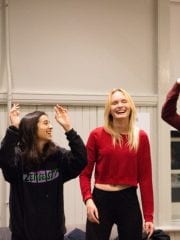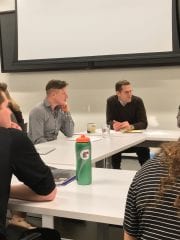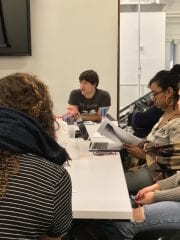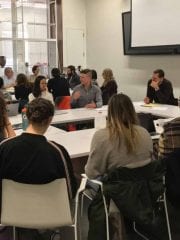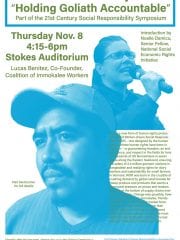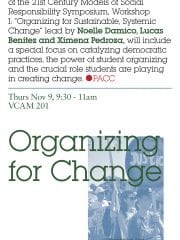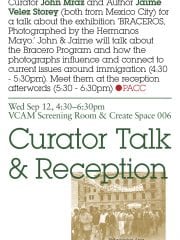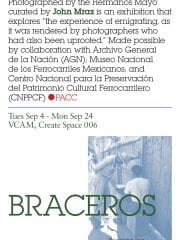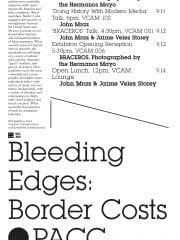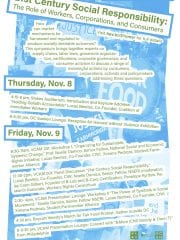Fall 2018
Introduction
A history, current reckoning, and dreaming forward of the limits and possibilities of political boundaries. Just as a single human is taken to be a closed sovereign unit that is nonetheless socially and environmentally co-constituted; states and their political boundaries are historically specific, interdependent, shifting. Territorial borders and the boundaries of citizenship are therefore open for debate and re-negotiation. As political thinkers, we often collapse identity, citizenship, and political realities into monolithic categories while ignoring specific histories and their complexity.
‘Bleeding Edges: Border Costs’ engages with histories of entanglement between the United States and Mexico, focusing on our shared labor histories and subsequent patterns of labor migration. We will look at legal work being done to defend human rights in the breach of current policies and try to understand current possibilities for solidarity amidst the “global mood” of increasing xenophobia. We will then strive to imagine possible futures. What would it mean for boundaries to prioritize the simultaneous well-being of a variety of individuals; citizens, migrants, “guest” workers, refugees of all stripes? How could they serve the most vulnerable and various peoples of multiple states; individuals from a wide variety of racial, and economic, backgrounds, with a variety of identities and relationships to ability, with varied political and social concerns? What would the best practices of such an orientation look like?
This project was active during Fall 2018. The planning for this project began a semester in advance, and follow-up extended past the active period.
Collaborators

Lead Artist
Levi Bentley organizes the reading series Housework and edits the journal Boneless Skinless, featuring work by Housework participants. A chapbook of poems “Bucolic Eclogue” was released from Lamehouse Press in July 2016. Levi has worked in publishing for a variety of clients including Copper Canyon, Ugly Duckling Presse, LUMA Foundation, and Jacket2 reissues at Kelly Writers House. They live in Philadelphia. // Chapbooks “Obstacle, Particle, Spectacle”, “&parts”, and “Stub Wilderness” were released from 89plus Luma Foundation, Damask Press, and Well Greased Press, respectively. Vitrine released a tape of sounds labeled “Red Green Blue”. Poems have appeared in 491, Apiary, Bedfellows, BlazeVOX, Boog City, Elective Affinities, Fact-Simile, Gigantic Sequins, No Infinite, Maestra Vida, Magic Pictures, Painted Bride Quarterly, Small Po[r]tions, Stillwater Review, Tinge and Truck.
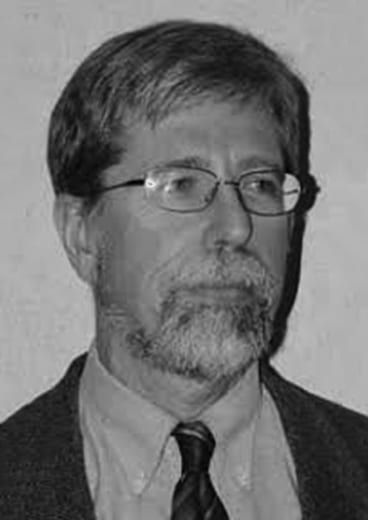
General Counsel
Justice at Work
Justice at Work is a multilingual legal nonprofit founded solely to support organizations of workers in low-paying jobs. We envision a future in which all workers have the power to ensure safe and healthy conditions, fair wages, and dignity and respect.
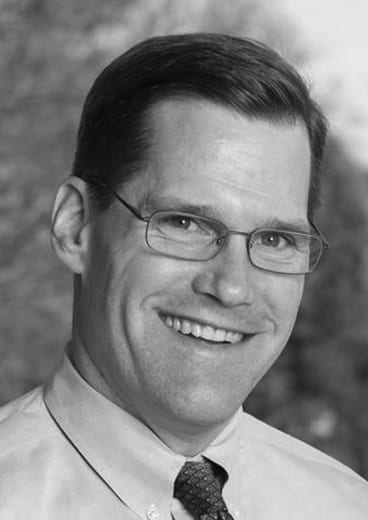
Professor of History
Haverford College
My research focuses on problems of historiography and representation, religious history, and visual culture. Currently, I am engaged in two book length research efforts. The first, tentatively titled “The Benedictines, Slavery and the History of Colonial Brazil,” uses material culture including religious art and architecture to explore the Benedictine religious order in the Portuguese colonial world, from late medieval times through the late nineteenth century abolition of slavery in Brazil. The second, co-authored with my colleague David Watt, examines the life and times of the Quaker scholar and activist Henry Cadbury, one of the early twentieth century co-founders of the American Friends Service Committee. Previous publications include my first book, Rereading the Conquest: Power, Politics and the History of Early Colonial Michoacán (Pennsylvania State Unviersity Press, 2001). This book combined literary theory and historical research to analyze the origins and transformation over time of a specific conquest narrative. It was selected for the Association of University Presses’ Books for Understanding: Mexico Book List. My second book, Paul Strand in Mexico,1932-34 (Aperture, 2010) utilized photography and film to examine social and cultural history in twentieth century Mexico. As part of this project I served as co-curator for a photography exhibition appearing at several locations including the Aperture Gallery in New York (http://www.aperture.org/gallery). Reviews of the exhibit from a variety of perspectives can be found at artdaily.com and the Wall Street Journal.
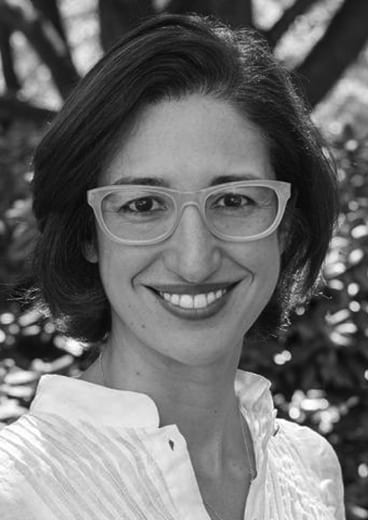
Associate Professor of Political Science
Haverford College
Paulina Ochoa Espejo is an Associate Professor of Political Science. She works at the intersection of democratic theory and the history of political thought, and she is interested in questions about popular sovereignty and borders. She has written about populism, the boundaries of the demos, immigration and the right to exclude, the relation between democracy and territorial rights, the moral relevance of borders and border control. She is also interested in Latin American Political Thought. // Before joining the faculty at Haverford College, she was an Assistant Professor at Yale University, and a Laurance S. Rockefeller Visiting Fellow at the University Center for Human Values, Princeton University. She has been visiting professor at CIDE in Mexico City, and a Carey Postdoctoral Fellow at the Erasmus Institute in the University of Notre Dame.
Events
Justice at Work: Arthur Read, General Counsel
Non-Profit Partner
990 Spring Garden Street, Suite 300, Philadelphia, PA
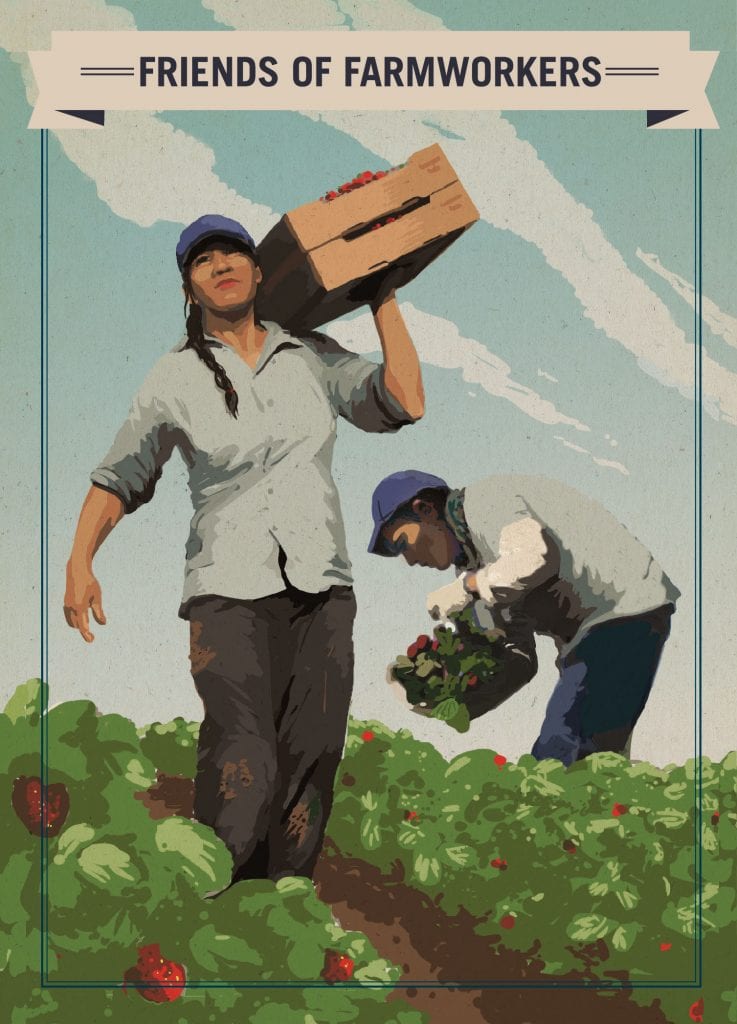
Justice at Work (formerly Friends of Farmworkers) supports low-wage workers as they pursue economic and social justice. We do this through the provision of Legal Services, Education, and Advocacy.
We advance our mission by providing free legal representation on employment-related issues to eligible workers. We also provide community education on legal rights for migrant and immigrant workers throughout the Commonwealth.
We serve communities of workers that include workers in industries that rely heavily on seasonal foreign guest workers brought in under H-2B visas, who often return to work for the same Pennsylvania employers year after year. We also provide legal assistance to income-eligible worker organizations.
For over 30 years, FOF has provided direct legal assistance to thousands of individuals and improved the living and working conditions of a much larger number through advocacy and impact litigation, including representation of groups of workers and class action litigation.
Image Credit: Justice at Work/Friends of Farmworkers
Levi Bentley, Lead Artist
Artist in Residence
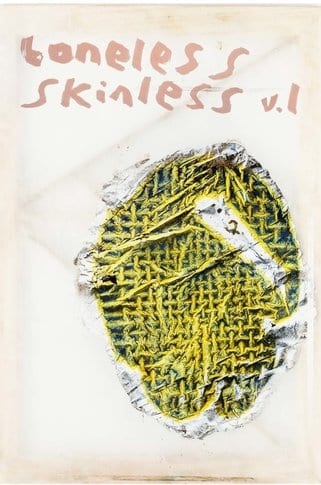
Levi Bentley lives in Philadelphia and works in a variety of media including design, poetry, installation, publishing, etc.
The image above is the cover of their project Boneless Skinless edited in collaboration with Jonathan Hamilton and released in February 2017. Contributors include Brandon Holmquest, Brandon Kelley, CAConrad, Jai Arun Ravine, Jay Besemer, Jooyhun Kim, Raquel Salas Rivera, Ryan Eckes. Follow this link to purchase Boneless Skinless.
Image Credit: Levi Bentley
Visions of Mexico Course Visit w/ John Mraz, Curator & Jaime Story, Author
Course Visit
9.10
1:30-4pm, VCAM & Hilles Hall, Haverford College
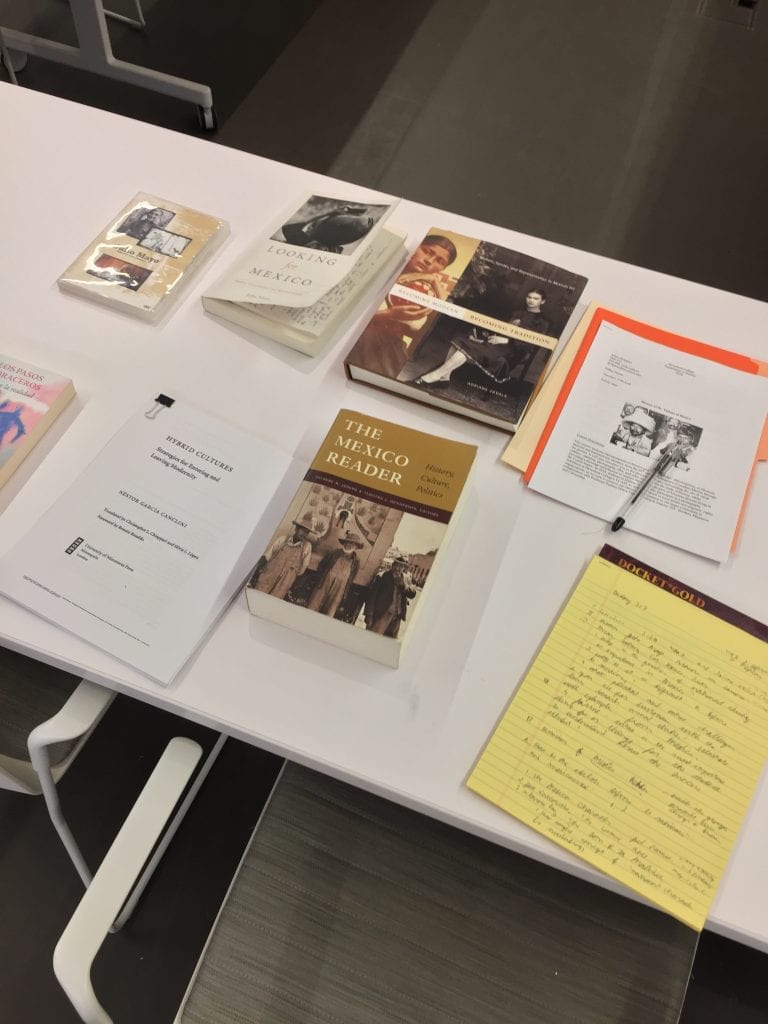
John Mraz and Jaime Storey will be on campus from September 9th – 15th to talk about their collaborative writing and work around The Bracero Program. Haverford College is thrilled to host the traveling exhibition ‘BRACEROS, Photographed by the Hermanos Mayo’ curated by John Mraz, the exhibition will be installed in the VCAM lower create space from September 4th – 24th, 2018. The course visit to Jim Krippner’s course “Visions of Mexico” will include a discussion with the students about the content of the exhibition and what texts have influenced John and Jaime’s research.
John and Jaime co-wrote the book Uprooted: Braceros in the Hermanos Mayos Lens.
Photo Credit: Stephanie Bursese
Doing History with Modern Media w/ John Mraz, Curator
Presentation & Discussion
9.11
6-7:30pm, VCAM, Haverford College
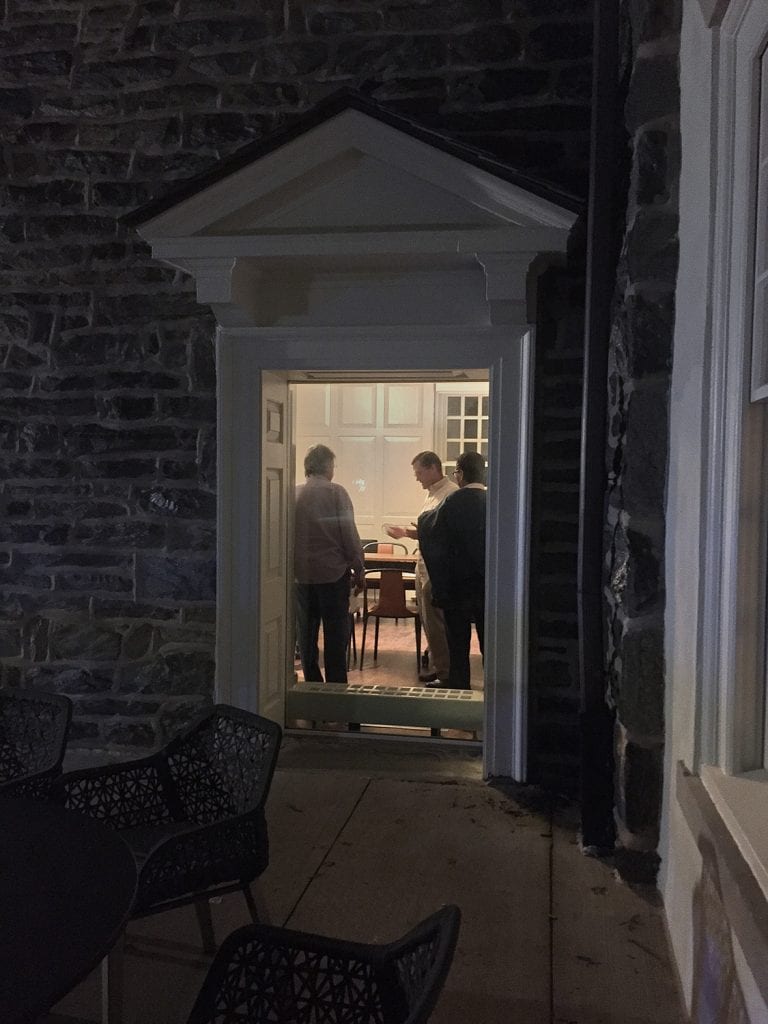
Join curator, author, director and historian John Mraz for a workshop that suggests ways of thinking about and doing history given the influence of new medias and technologies. Dinner provided-seating is limited.
Photo Credit: Stephanie Bursese
"Braceros: Photographed by the Hermanos Mayo" Exhibition
Talk & Reception
9.12
4:30-6:30pm, VCAM, Haverford College
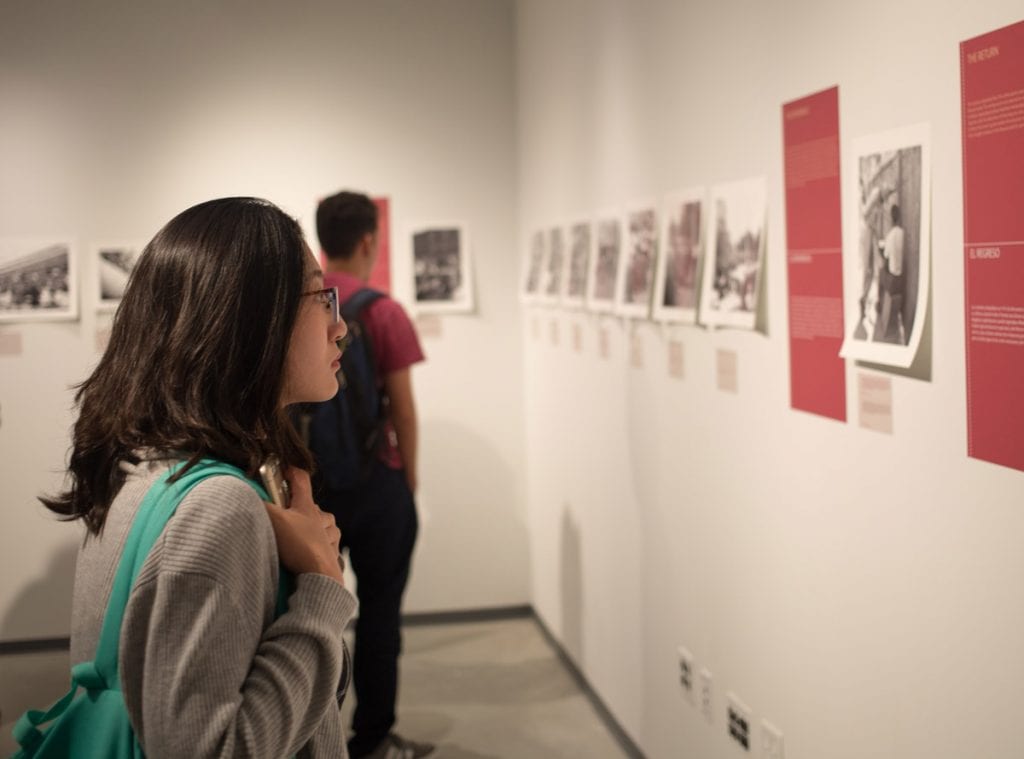
BRACEROS
Photographed by the Hermanos Mayo
4:30-5:30 pm Talk with Curator John Mraz and Author Jaime Velez Storey (from Mexico City) VCAM Screening Room 001
5:30-6:30 pm Reception, VCAM Create Space 006
Light refreshments provided
Exhibition Runs: September 4 – 24, 2018
Gallery Hours: Monday-Friday, 9am-5pm
A specter is haunting the world – the specter of immigration. In this exhibit, we explore the experience of emigrating, as it was rendered by photographers who had also been uprooted. Today, as waves of migrations hurl themselves on the coasts and borders of the world, it seems appropriate to reflect on the Mexican braceros who were recruited to fill the boots of those US soldiers who had gone to fight fascism in the Second World War. Under the “Bracero Program, 1942-1964,” Mexicans were legally contracted to work in the USA as temporary unskilled laborers. We have chosen to tell this story through photographs made by other emigrants, Spanish refugees from that country’s Civil War (1936-1939), who — though they left their country for different reasons –nonetheless bring the particular gaze of emigrants to this task.
LOS BRACEROS
Fotografiados por los Hermanos Mayo
Curador: John Mraz
Un fantasma recorre el mundo: el fantasma de la inmigración. En esta exposición exploramos la experiencia de emigrar y la mostramos con imágenes hechas por unos transterrados. Hoy en día, mientras oleadas de migraciones
arrojan sus cargas humanas sobre las costas y las fronteras de todo el mundo, nos parece apropiado reflexionar sobre los braceros que fueron reclutados para reemplazar a los soldados norteamericanos que se habían ido a luchar contra el fascismo durante la Segunda Guerra Mundial. Con el “Programa Bracero” de 1942-1964, los mexicanos fueron legalmente contratados por los Estados Unidos como trabajadores temporales no calificados. Hemos elegido contar esta historia mediante las fotografías de otros migrantes –refugiados españoles de la Guerra Civil Española (1936-1939) — que tuvieron que dejar su patria por razones distintas.
Photo Credit: Haverford College Communications
Borders, Immigration, and Citizenship & Visions of Mexico Course Visits w/ Levi Bentley, Lead Artist
Poetry Workshop
Multiple
1:30-4:00pm, VCAM & Hilles Hall, Haverford College
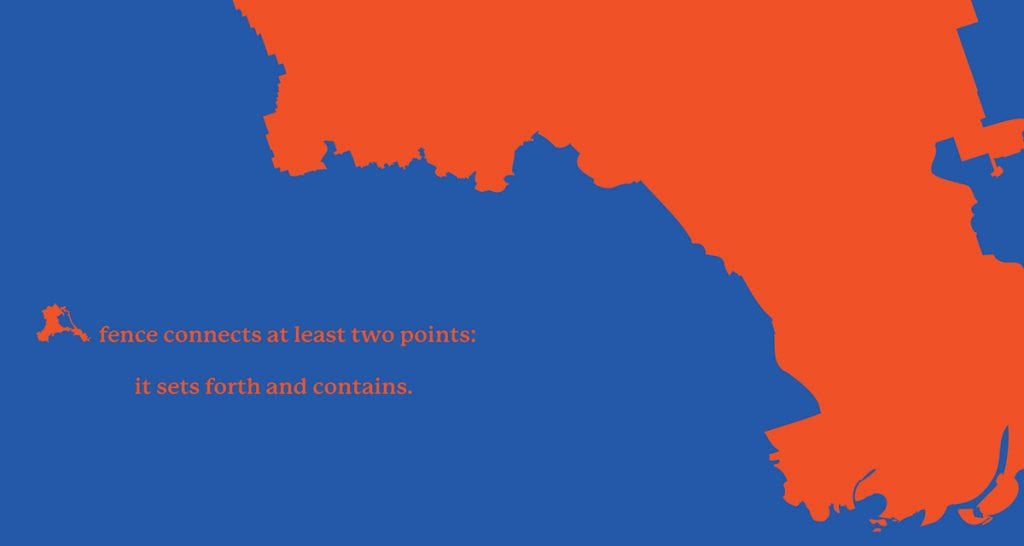
Lead Artist, Levi Bentley, visited Paulina Ochoa’s course “Borders, Immigration, and Citizenship” and professor Jim Krippner’s “Topics in Latin American History: Visions of Mexico” multiple times throughout the semester.
Before the semester began, Bentley, Krippner, and Ochoa co-designed these workshops to teach students a creative way to process the complicated sociopolitical information they would encounter in both courses. Bentley was given hard copies of all required readings for both courses and they read these assigned readings along with the students. The writing assignments outlined in the syllabi by Krippner and Ochoa were more technical or and contained structured guidelines. In conjunction with these assignments, developed by the collaborators to provide an alternate mode of expression, Levi would pose weekly creative writing prompts that would give the students a space to think, write, and respond creatively to the subject matter in the readings. During the workshops, Levi explained their methods of writing, reading, and interpreting poetry. They would respond to the student’s writing – giving feedback, and asking questions about the pieces.
Image Credit: Levi Bentley
Open Lunch w/ Arthur Read, General Counsel, Justice at Work
Lunch & Discussion
9.14
12-2:00pm, VCAM, Haverford College
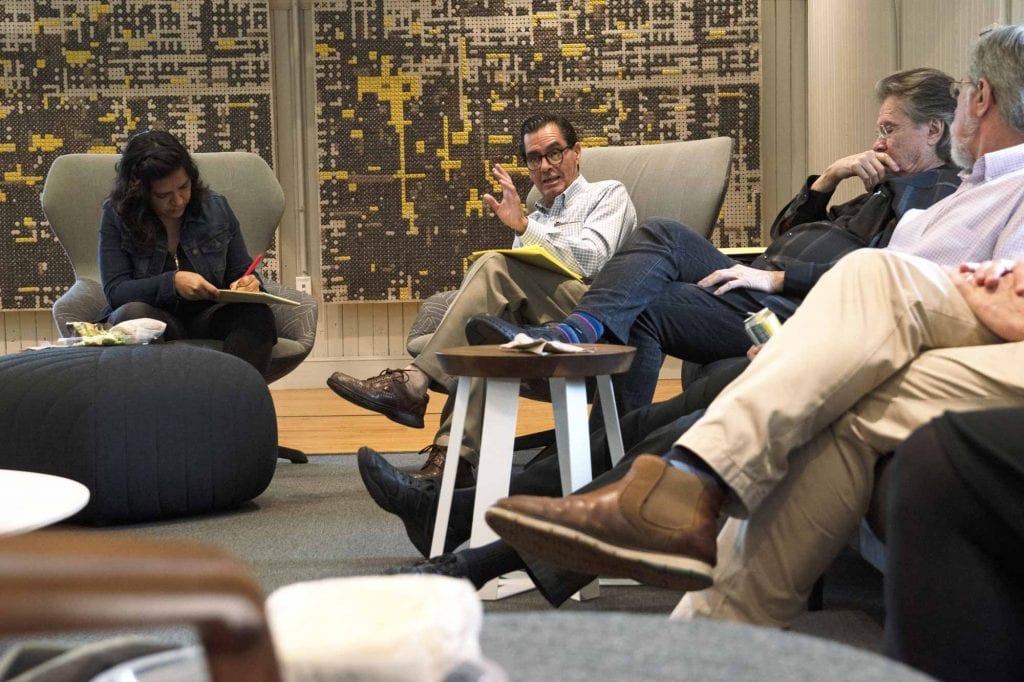
During this informal lunch conversation, members of the Haverford community had a chance to casually mingle, eat, and chat with Arthur Read, General Counsel at Justice at Work, our lead non-profit partner. In addition, John Mraz, curator and co-author of Uprooted: Braceros in the Hermanos Mayos Lens, as well as author Jaime Storey, were visiting from South America and were able to join the discussion.
Photo Credit: Haverford College Communications
21st Century Models of Social Responsibility: Roles for Workers, Corporations, and Consumers
Symposium
11.8 -11.9
Multiple Times, Haverford College
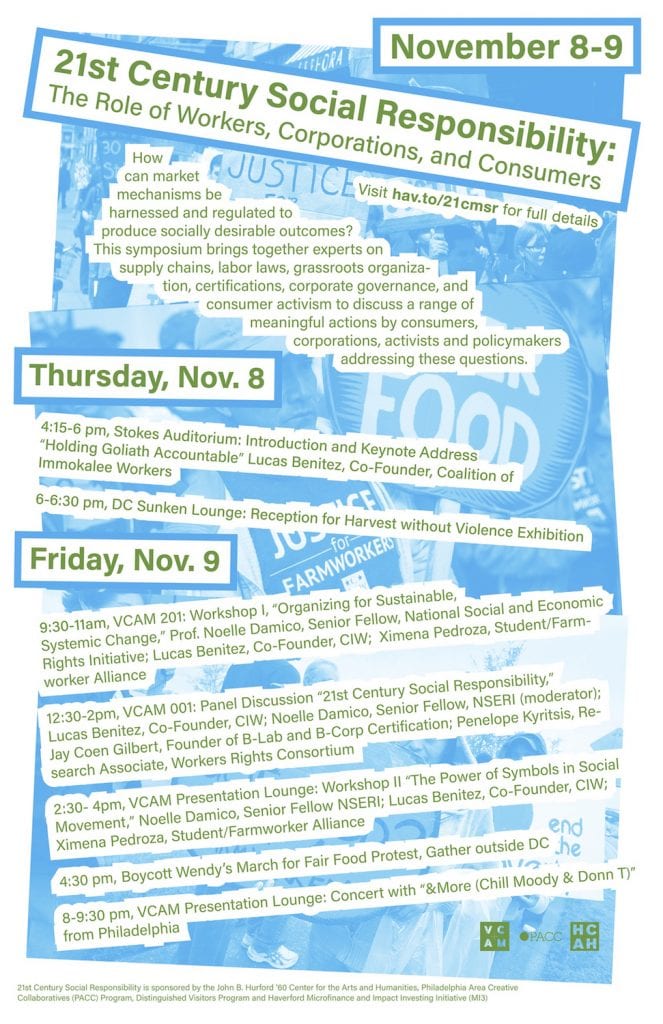
November 8 & 9, 2018. In this symposium, we bring together organizations harnessing market mechanisms to effect change and move the market to produce the outcomes we as a society want. All events are free and open to the public.
The concept of social responsibility in the context of a market economy continues to evolve in the 21st century. While the sustained efforts of unions, individuals, civic organizations, and government all helped establish some basic protections and work parameters in the 20th century, what is being done now? Where is progress being made? In this symposium, we bring together organizations harnessing market mechanisms to effect change and move the market to produce the outcomes we as a society want. From grassroots organization in the field to product certification on the shelves, to C-Level commitments, corporations claim to be accepting social responsibility and acting to make the market work better. Join us to hear about their different models and assess their effectiveness.
All events are free and open to the public. 21st Century Models of Social Responsibility is sponsored by the John B. Hurford ’60 Center for the Arts and Humanities, Philadelphia Area Creative Collaboratives (PACC) Program, Distinguished Visitors Program, and Haverford Microfinance and Impact Investing Initiative (MI3)
Full Schedule of Symposium Events and Participants
Read lessHolding Goliath Accountable
Introduction & Keynote Address
11.8
4:15-6:00pm, Stokes Building, Haverford College
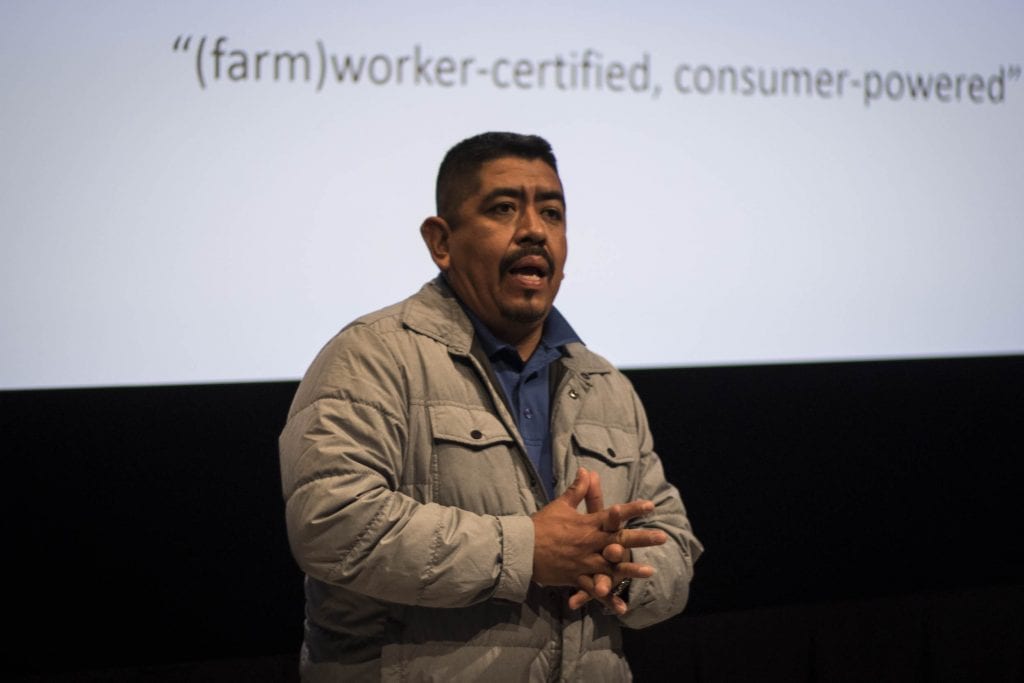
Holding Goliath Accountable: How farmworkers and consumers have used market power of multi-billion-dollar food brands to achieve unprecedented human rights advances in US agriculture and a new paradigm for social responsibility.
Lucas Benitez, Co-Founder, Coalition of Immokalee Workers
Introduction by Noelle Damico, Senior Fellow, National Social Economic Rights Initiative
Today, a new form of human rights protection called Worker-driven Social Responsibility (WSR) – one designed by the human beings whose human rights have been in question – is guaranteeing freedom, an end to violence, and respect in the fields for tens of thousands of US farmworkers in seven states along the Eastern Seaboard, ensuring the safety of 2.4 million garment workers in Bangladesh and realizing rights for dairy workers and sustainability for small farmers in Vermont. WSR was born in the crucible of crushing demand by global retail brands for cheap produce and products that exert downward pressure on prices and renders workers at the bottom of supply chains ever more vulnerable. The change was possible, however, when workers in Immokalee, Florida realized that this damaging market force could be re-channeled to enforce their human rights. Come hear what Harvard Business Review named “among the most important social impact stories of the last century” and learn where you fit in.
Photo Credit: Haverford College Communications
Harvest without Violence
Reception & Exhibition
11.8
6:00-6:30pm, Dining Center, Haverford College
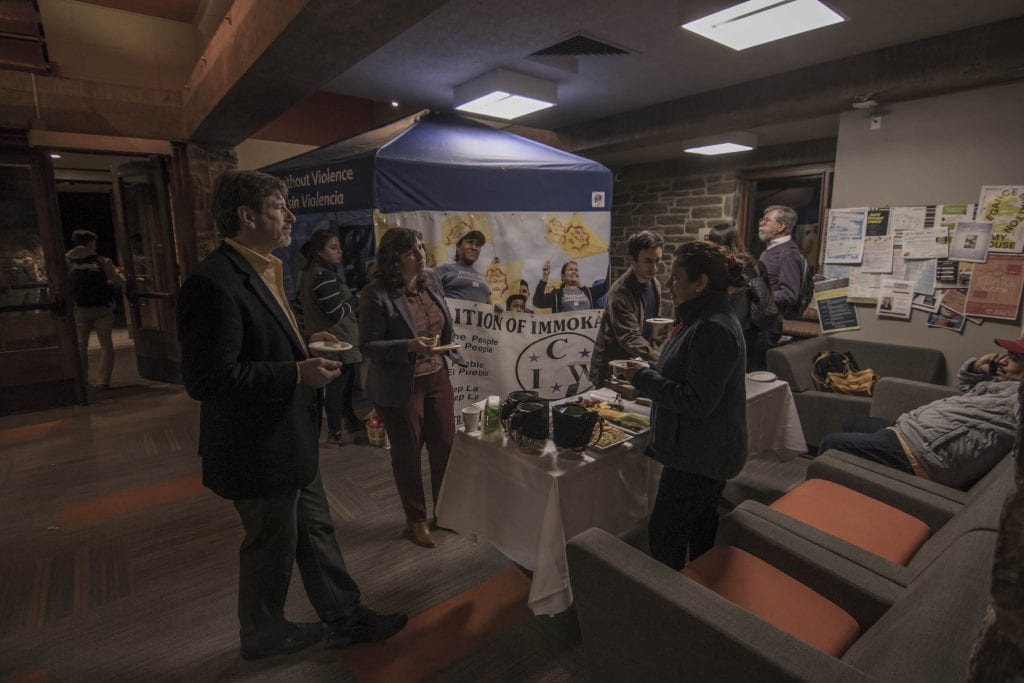
Talk with docent Ximena Pedroza, Student/Farmworker Alliance about the exhibit on Tuesday, Nov. 6 through Friday, Nov. 9 between 11:30 a.m.–1:30 p.m. and 4:30–6:30 p.m. daily.
Harvest without Violence is a mobile museum on sexual violence in agriculture and the Fair Food Program.
4 out of 5 women farmworkers have experienced sexual harassment or assault in US Agriculture. Come and learn about the farmworker-designed program that’s stopping it.
Through the exhibition, visitors are immersed in a world of multimedia and investigative journalism, extensive academic research, court documents, and farmworker women’s testimonies detailing the pervasive problem of violence against women in agriculture, both in the US and across the border in Mexico.
The exhibit explores the Fair Food Program as a model for sexual violence prevention and captures its stunning impact on farmworker women’s lives. Participants are presented with the ongoing work to expand the Fair Food Program through the CIW’s Campaign for Fair Food and national Wendy’s Boycott, a section that examines the contrasting models of Corporate Social Responsibility versus the Worker-driven Social Responsibility Model established by the Fair Food Program.
Photo Credit: Haverford College Communications
Workshop I: Organizing for Sustainable, Systemic Change
Workshop
11.9
9:30-11:00am, VCAM, Haverford College
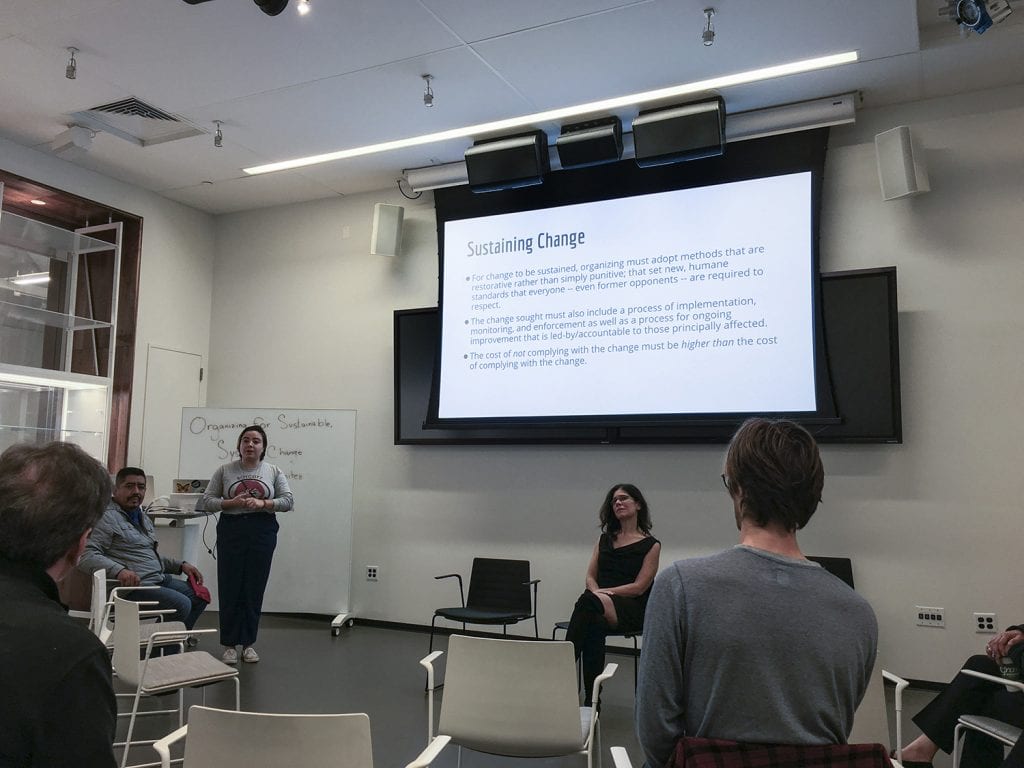
Lucas Benitez, Co-Founder, Coalition of Immokalee Workers
Noelle Damico, Senior Fellow, National Social Economic Rights Initiative
Ximena Pedroza, Student/Farmworker Alliance
Nelson Mandela once observed, “It always seems impossible, until it’s done.” Come learn how the Coalition of Immokalee Workers and Alliance for Fair Food used a human-rights approach to organizing that united hundreds of thousands of people to make the impossible, possible! We will look at why this approach, gleaned from people’s movements in Mexico, Guatemala, and Haiti has been so successful in creating sustainable, systematic change that delivers results while catalyzing democratic practices. This workshop will include a special focus on the power of student organizing and the crucial role students are playing in the movement for Fair Food.
Photo Credit: Stephanie Bursese
21st Century Social Responsibility
Panel Discussion
11.9
12:30-2:00pm, VCAM, Haverford College
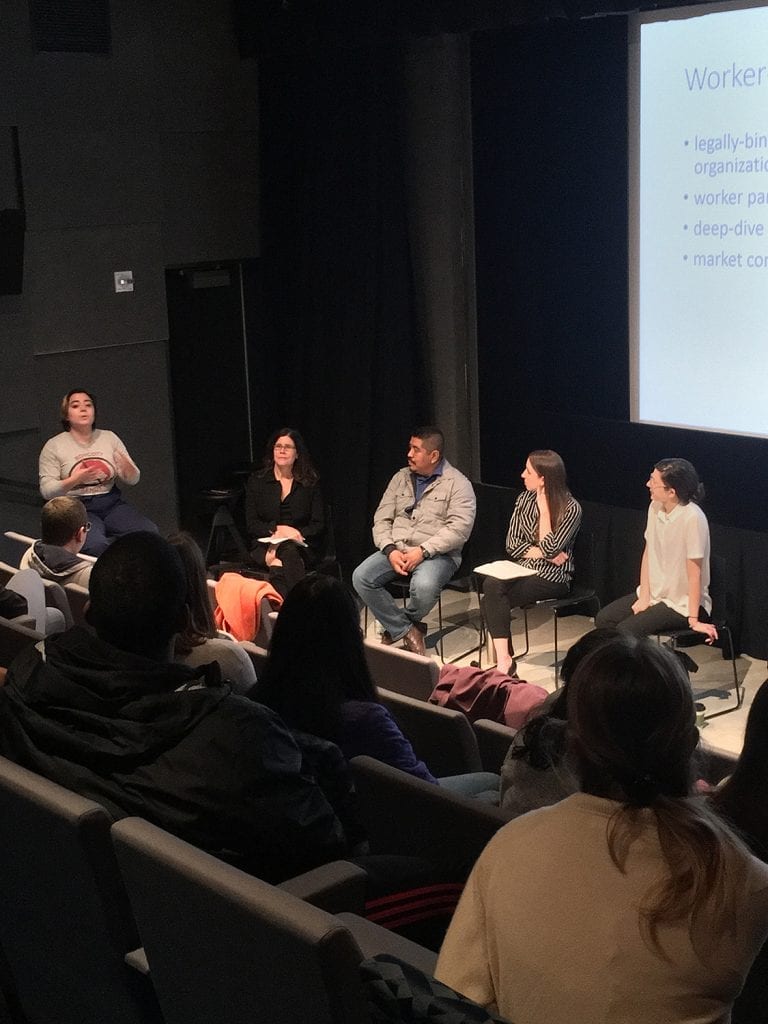
Lucas Benitez, Co-Founder, Coalition of Immokalee Workers
Noelle Damico, Senior Fellow, National Social Economic Rights Initiative (moderator)
Jay Coen Gilbert, Founder of B-Lab and B-Corp Certification
Penelope Kyritsis, Research Associate, Workers Rights Consortium
The last 50 years have seen the emergence of massive private corporations with economic power far greater than that of many states and with the responsibility born of that power to protect the communities in which they operate, the environments with which they interact and the human rights of workers toiling in their vast, global supply chains. This panel will discuss models and approaches to social responsibility including standards development, monitoring, enforcement, and certification. It will examine the role of consumers and investors in these approaches to social responsibility and the results achieved.
Photo Credit: Haverford College Communications
Workshop II: The Power of Art and Symbolism in Social Movement
Workshop
11.9
2:30-4:00pm, VCAM, Haverford College
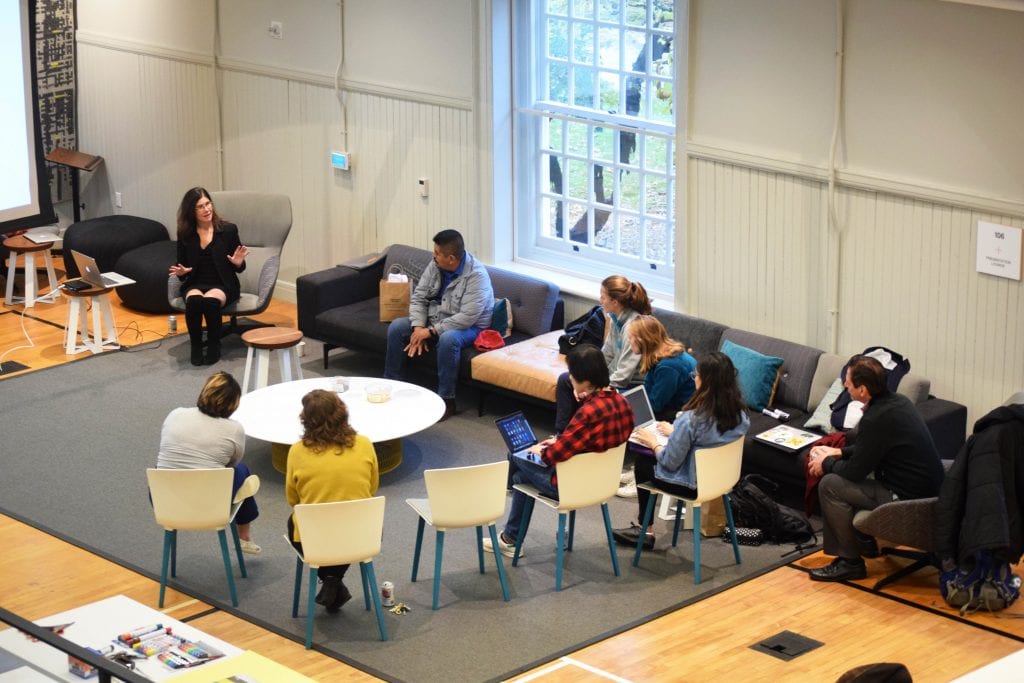
Lucas Benitez, Co-Founder, Coalition of Immokalee Workers
Noelle Damico, Senior Fellow, National Social Economic Rights Initiative
Ximena Pedroza, Student/Farmworker Alliance
In this workshop, we’ll explore how the Coalition of Immokalee Workers used everyday objects that were emblematic of their exploitation – soiled clothing, worn-out shoes – to center powerful direct actions that made a direct and impossible to ignore the demand for corporate executives to recognize farmworkers’ humanity. We’ll look at how CIW repurposed iconic symbols such as the Statue of Liberty to capture their quest for equality and justice in America. [That CIW statue is now the centerpiece of the Smithsonian’s permanent exhibit “The Nation We Build Together.”] We’ll examine how CIW used what’s come to be known as “brand busting” to reposition exploitation in the minds of consumers who heard or saw corporate taglines and logos.
Photo Credit: Haverford College Communications
Wendy's Restaurant Protest w/ Haverford, Bryn Mawr, & Temple Students
Protest
11.9
4:30-5:30pm, Wendy's, 555 W Lancaster Ave, Haverford, PA
After Workshop II, students used the signs they crafted in a protest march to Wendy’s in solidarity with the Boycott Wendy’s movement.
From the Boycott Wendy’s website:
“For over seven years, hundreds of thousands of farmworkers with the Coalition of Immokalee Workers (CIW) and their consumer allies have demanded verifiable protections against sexual violence, forced labor and other human rights abuses in Wendy’s supply chain by joining the Presidential Medal-winning Fair Food Program. All of the largest fast-food companies — McDonald’s, Burger King, Subway, Taco Bell and Chipotle — along with nine other major food retailers, from Whole Foods to Walmart, have joined. All except Wendy’s.
Bowing to massive consumer pressure in the national Wendy’s Boycott, the fast-food giant announced its tomato purchasing shift away from Mexico’s abusive tomato industry to greenhouse operations in the U.S. and Canada. Wendy’s has released misleading statements, including the claim that greenhouses have “inherent benefits of safe, indoor working conditions,” known to be false by farmworkers. Wendy’s assurances that working conditions are fine in their greenhouse suppliers’ operations ring hollow when compared to the hard evidence of harsh conditions faced by workers in greenhouses, not to mention the well-documented failure of the auditing companies tasked with protecting workers from widespread labor and safety violations.
The very workers that Wendy’s decision-makers have turned their backs on for years are the same workers responsible for the company’s financial health, when all is said and done. Instead of finding excuse after excuse not to join the most widely respected human rights program in agriculture today, it’s time for Wendy’s to partner with the CIW and invest in real, enforceable health, safety, and human rights standards in its supply chain. Wendy’s: join the Fair Food Program now!”
Video Credit: The Coalition of Immokalee Workers
Philadelphia’s &More (Donn T & Chill Moody)
Concert
11.9
8:00-9:30pm, VCAM, Haverford College
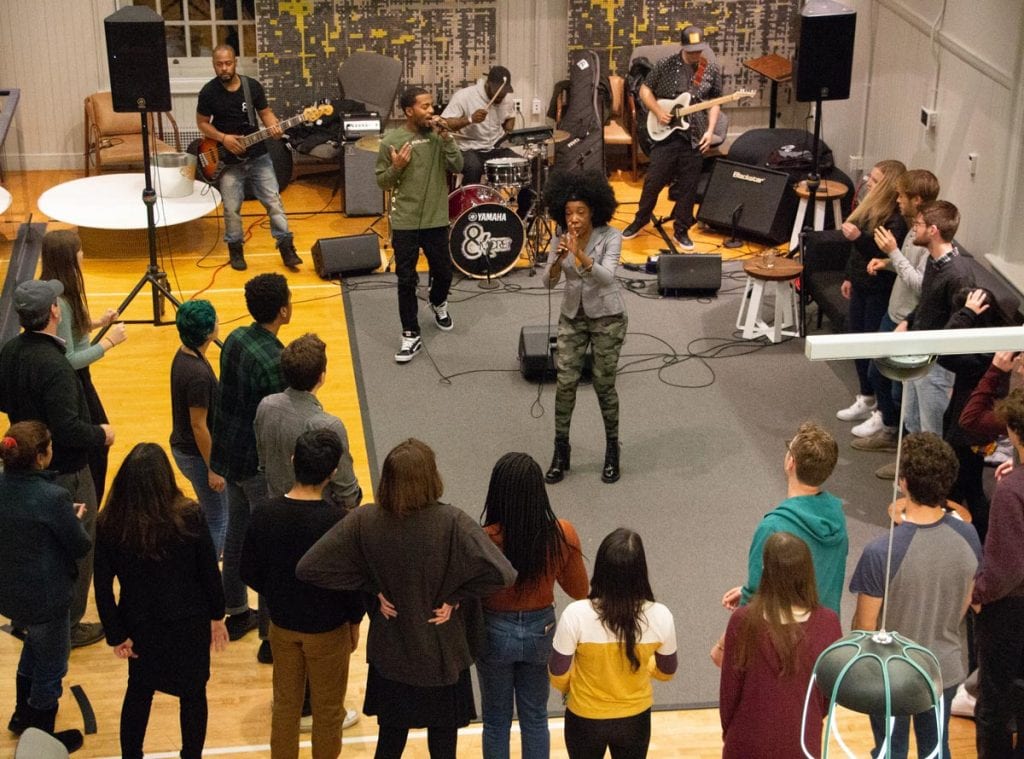
Performers: Philadelphia Musicians Donn T (Alt R&B) and Chill Moody (Rap/Hip-Hop)
Come hear Chill Moody’s thought-provoking lyrics and Donn T’s smooth vocals as this new duo and their band bring their special rap/alt R&B sound to the VCAM. They are steeped in the Philly music scene (Questlove is Donn T’s brother and Chill Moody picked Best Rapper in Philadelphia Magazine’s “Best of Philly” issue) with a strong focus on community and justice in their songs. After a great performance at the XPN XPoNential Music Fest this summer, they are about to drop their first album. Come hear them here and now on Haverford’s campus for the music event of the year.
Photo Credit: Haverford College Communications
Bleeding Edges Share Out
Presentation & Discussion
12.11
VCAM, Haverford College
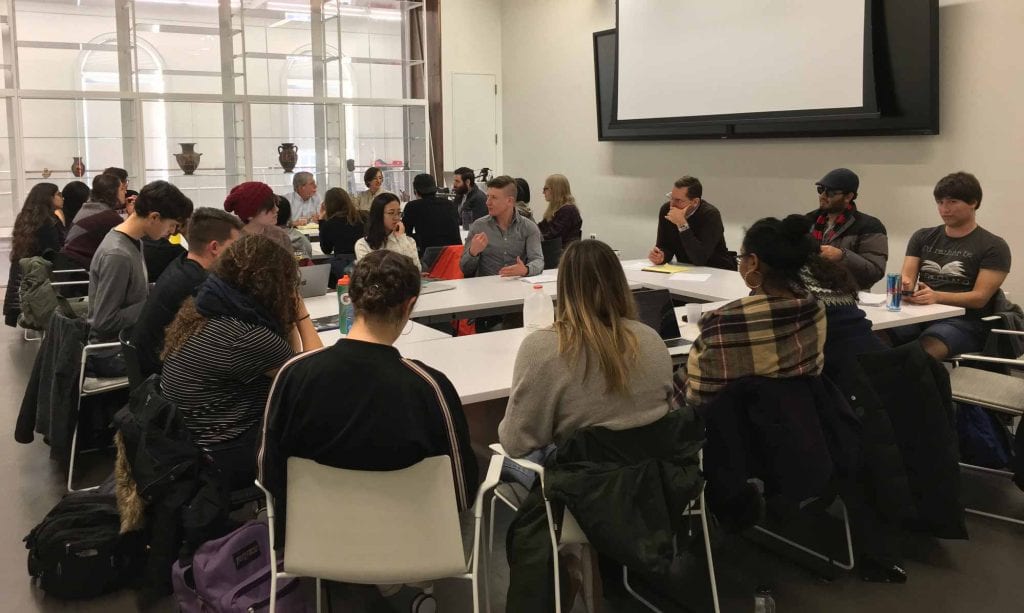
In this culminating event, both classes convened to share thoughts and process the connections that the students made over the course of the semester. Both PACC classes met together with Lead Artist Levi Bentley, Arthur Read, General Counsel of Justice at Work, and their professors Paulina Ochoa and James Krippner.
Once both classes convened, the large group of co-mingled students split in half and gathered at tables set on opposite sides of the room. With Bentley at one table and Read at the other, the collaborators asked the students about their experiences. Bentley and Read then switched tables so everyone in the room could have time to share their perspective within a smaller group.
Photo Credit: Stephanie Bursese
